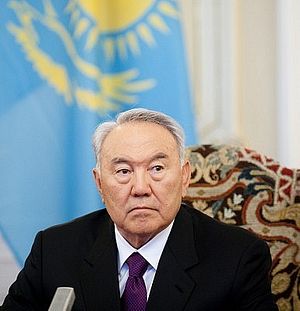World leaders stood behind the Turkish government when a military faction attempted to stage a coup on July 15. From UN Secretary General Ban Ki-moon, who called for calm and underscored that “military interference in the affairs of any state is unacceptable,” as the coup attempt progressed; to European leaders and U.S. President Obama.
Russian President Vladimir Putin was among the first to call. Despite nearly eight months of tense relations and sanctions stemming from the late November 2015 shoot-down of a Russian jet on the Turkey-Syria border, the coup attempt happened just as Moscow and Ankara were exploring a rapprochement. Putin called to reaffirm “Russia’s principled position that anti-constitutional actions and violence are categorically unacceptable in any country.” As Ankara pinned the coup on followers of Fethullah Gülen, it also claimed the pilots responsible for the November incident were part of the coup–an abandonment of Turley’s previous defense of its pilots and a boon to Moscow.
But of all the world leaders calling to express their support of Erdogan–the first to schedule a visit is none other than Kazakhstan’s President Nursultan Nazarbayev.
Kazakhstan’s pursuit of a so-called multivector foreign policy has led Astana to act as a mediator, or at least a diplomatic conduit, between parties in a number of global crises. These efforts have been unsuccessful in Syria and Ukraine. In Turkey, however, Kazakhstan was perhaps perfectly placed to act as a go-between. Turkey thanked Kazakhstan (and Azerbaijan) for helping bridge the wide diplomatic gap between Ankara and Moscow.
Nazarbayev’s visit to Turkey–he’s reported to be landing Friday afternoon in Ankara–is a significant diplomatic event. According to TASS, citing Turkey’s Ihlas News Agency, the two leaders are framing their discussion within the Turkic Council. One of the strongest links between Turkey and the states of Central Asia has been a shared history and language, all the states of Central Asia save Tajikistan speak Turkic languages.
While world leaders affirmed their stance vis-a-vis military coups (put simply: not okay), many in the West had been expressing growing frustration with Erdogan’s increasingly authoritarian tendencies before the coup and deep concern after as the number of people arrested rose and the list of journalists with warrants lengthened. The U.S.-Turkey relationship in particular has been under greater strain despite Obama’s expression of support. Ankara insists that the coup attempt was propagated by followers of Fethullah Gülen, who lives in exile in a compound in rural Pennsylvania. Obama, in his call with Erdogan, stressed that “investigations and prosecution of the coup’s perpetrators be conducted in ways that reinforce public confidence in democratic institutions and the rule of law.” The United States has said it will not extradite Gülen without solid evidence–evidence presumably not obtained via forced confessions.
Milliyet, a Turkish newspaper, reported that Erdogan and Nazarbayev will discuss Gülen, his followers, and the network of schools they support around the world. Last week, Astana pushed back in Turkish demands that Kazakhstan close the Gülen-affiliated schools in the country. Kazakhstan declined–as did Kyrgyzstan, though Atambayev used more colorful language in doing so–in part due to the value of the schools, which are largely considered excellent educational institutions.
Erdogan is expected to discuss the issue with Nazarbayev, and in the words of TASS, “express his deep concern.” We’ll see after the visit if Erdogan changes Nazarbayev’s mind.
































